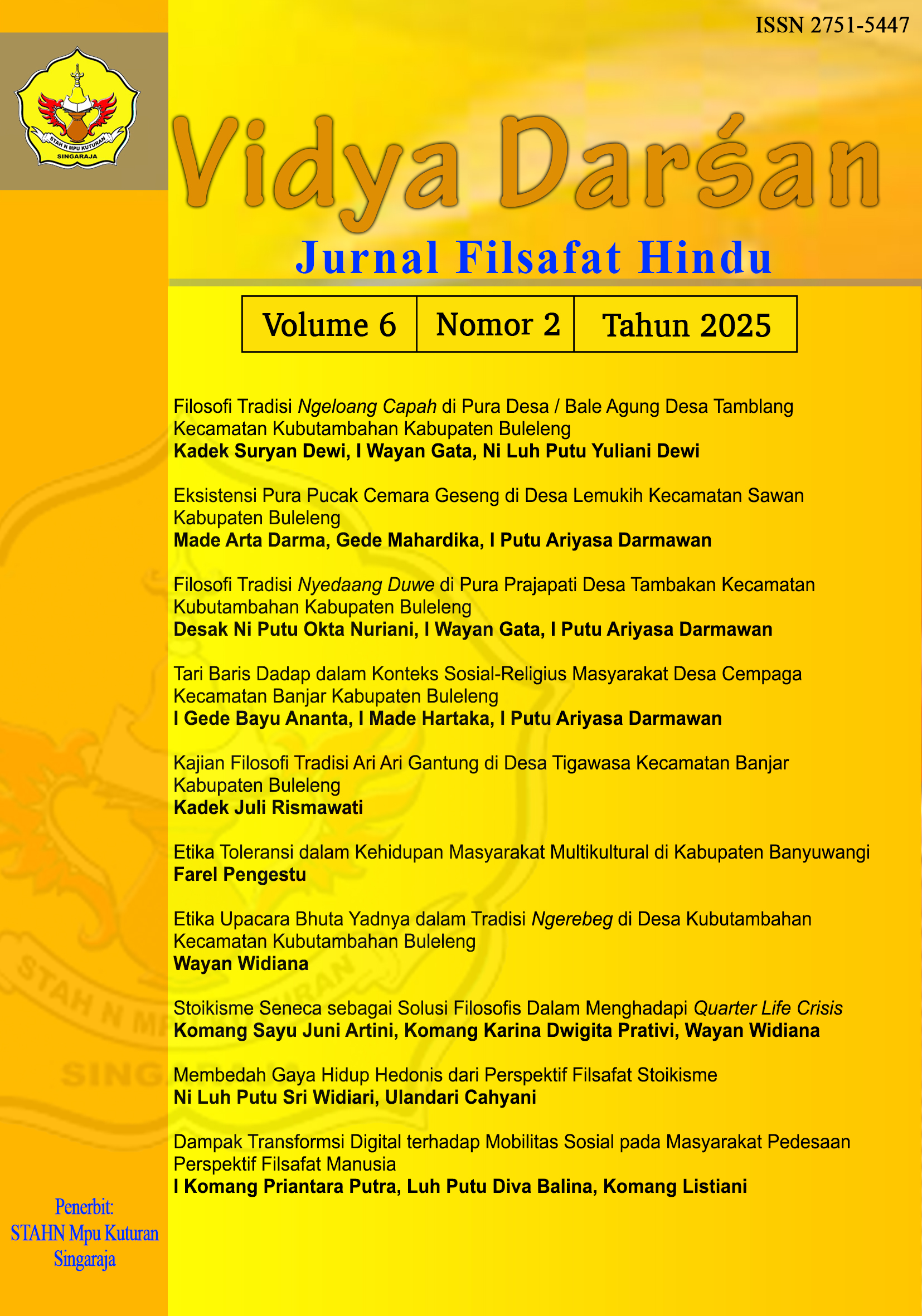KAJIAN FILOSOFI TRADISI ARI ARI GANTUNG DI DESA TIGAWASA KECAMATAN BANJAR KABUPATEN BULELENG
Keywords:
philosophy, ari ari gantung tradition, cultural preservation.Abstract
The Hanging Placenta Tradition is one of the cultural heritages of the Bali Aga community in
Tigawasa Village which is still practiced today. This tradition is related to the birth process,
where the placenta of a newborn baby is not buried as is common, but is hung on a pigi tree
which is considered sacred. This belief contains philosophical values that reflect the
harmonious relationship between humans, nature, and spirituality. The Hanging Placenta
Tradition is a hereditary legacy from ancestors who were not allowed to plant placentas in the
yard area because it was considered leteh/dirty. Based on this background, the research has
three problems to be discussed, including: (1) Why is the hanging placenta tradition carried
out by the people of Tigawasa Village, Banjar District, Buleleng Regency?, (2) What is the
form of implementation of the hanging placenta tradition in Tigawasa Village, Banjar District,
Buleleng Regency? Buleleng?, (3) What is the meaning contained in the tradition of hanging
placenta in Tigawasa Village, Banjar District, Buleleng Regency? The theoretical basis used
in this study is: (1) Religious Theory, (2) Symbol Theory, and (3) Meaning Theory. The
techniques used to collect data include observation, interviews, and documentation studies.
The data obtained or collected were analyzed using qualitative descriptive analysis techniques
with the steps of data collection, data reduction, data presentation, and data conclusions.
Based on the results of the data analysis, it shows: (1) The tradition of hanging placenta is
based on historical, sociological, and religious grounds. (2) The form of implementation of the
tradition of hanging placenta consists of four methods that have been explained in the
discussion. (3) The philosophical meaning contained in the tradition of hanging placenta is so
that the child becomes a good child, grows up to be a tall child and is blessed in his work. This
study aims to examine the philosophy contained in the Ari Ari Gantung tradition, understand
its symbolic meaning for the local community, and analyze how this tradition survives amidst
changing times. The research method used is a qualitative approach with data collection
techniques through interviews, observations, and literature studies. Research informants
consisted of traditional leaders, local communities, and parties directly involved in
implementing this tradition. The results of the study indicate that the Ari Ari Gantung tradition
has a deep meaning in the lives of the Tigawasa community. The philosophy contained in it
reflects the concept of balance between humans and nature (Tri Hita Karana), respect for
ancestors, and belief in spiritual powers that preserve the life of newborns. Despite facing the
challenges of modernization and external influences, the people of Tigawasa Village continue
to maintain this tradition as a cultural identity passed down from generation to generation.

